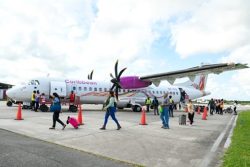(Reuters) – The decision to sanction a major league match in Brazil yesterday even though half the members of one club had coronavirus has highlighted the difficulties of sport’s return in a nation where the pandemic is still not under control.
A judge last week postponed the Palmeiras-Flamengo match after the Rio club said 16 players, the coach, team doctor and other members of the coaching staff had tested positive for COVID-19.
However, just minutes before the scheduled kickoff a more senior judge struck down that ruling and ordered that the league fixture must take place.
The match, in which Flamengo replaced many of their regular players with a host of reserves, kicked off 22 minutes late and ended 1-1 in front of an empty stadium at Palmeiras’ Allianz Parque.
However, the on-off debacle that stunned many observers threatened to destroy the already-weak consensus behind the game’s return.
Much criticism was levelled at Flamengo, one of the clubs that pushed for football’s quick return during the pandemic.
The club got the suspension order to postpone the game in a civil court, a practice frowned upon by the footballing community.
Some clubs said if Flamengo had managed to postpone the game then the entire league program should be halted.
Others criticised Palmeiras for insisting the game against one of their biggest title rivals go ahead.
There was also unease with the Brazilian Football Confederation for allowing the situation to deteriorate to the point where judges were deciding on what games take place.
Most of all, the chaos called into question the wisdom of restarting football in South America.
The resumption has been contentious in a region where hundreds of people are still dying each day from the virus.
More than 140,000 people have died from COVID-19 in Brazil, more than in any country except the United States. Mexico, Colombia and Peru have also been badly affected.
Only Argentina, Bolivia and Venezuela have yet to restart their domestic leagues.
Yet even without that preparation their top clubs have been obliged to participate in the Copa Libertadores, the South American equivalent of the Champions League.
Although no Libertadores games have been cancelled, several players have been forced to withdraw after testing positive for the coronavirus, including seven of the Flamengo players who travelled to Ecuador last week.
In other matches, referees and officials have had to be replaced at the last minute.
In the Brazilian league, clubs have been hit by withdrawals, with one game being called off just minutes before kickoff when players tested positive for the virus.
The unstable situation has also prompted fears about next month’s South American World Cup qualifiers.
With so many of the top players travelling from Europe, concerns have been raised about the risks to them and their families as they fly to and from South America to participate in ties played over five days between Oct. 8 and 13.





